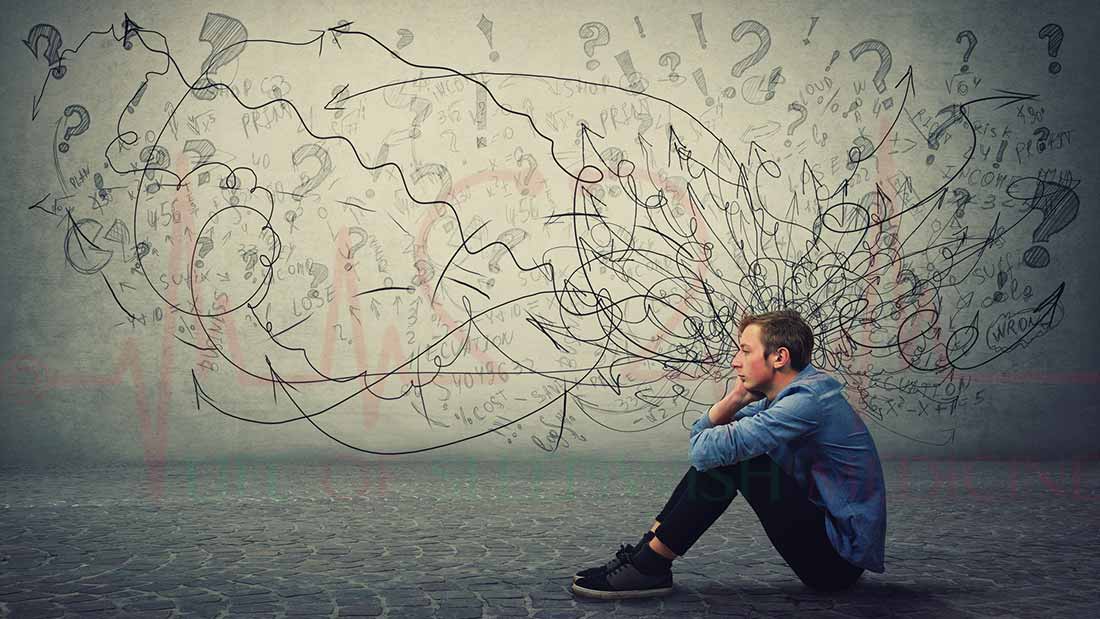
Introduction to Anxiety and Its Prevalence
Anxiety is a natural and often necessary response to stress, danger, or uncertainty. It’s a feeling of uneasiness, worry, or fear that can range from mild to severe. In today’s fast-paced and highly competitive world, anxiety has become a common experience for many individuals. The American Psychological Association reports that nearly 40 million adults in the United States suffer from anxiety disorders, making it the most prevalent mental health issue in the nation.
Even though anxiety is a widespread phenomenon, it’s still often misunderstood and stigmatized. This lack of understanding can further exacerbate the problem, as people may feel isolated or ashamed of their anxiety, which can make it more difficult for them to seek the help they need. In this article, we will explore the complex nature of anxiety, how it affects daily life, and what strategies can be employed to cope with it. Anxiety in detail.
Defining Anxiety: Is Anxiety a Mental Illness?
To better understand how anxiety affects daily life, it’s important to first define what anxiety is and address the question: is anxiety a mental illness? Anxiety, in and of itself, is not a mental illness. It’s a natural response to stress that can be adaptive in certain situations, like when it helps you stay alert and focused when faced with a challenging task or potential danger. However, when anxiety becomes excessive, persistent, or irrational, it can interfere with daily functioning and may be categorized as an anxiety disorder.
Anxiety disorders are a group of mental health conditions characterized by excessive worry, fear, or nervousness that can manifest in various ways, such as generalized anxiety disorder, panic disorder, phobias, or social anxiety disorder. These conditions fall under the umbrella of mental illnesses, as they can significantly impact a person’s ability to function and maintain their well-being. It’s important to recognize the distinction between normal anxiety and anxiety disorders to better understand how anxiety affects daily life and how to address it.
The Science Behind How Anxiety Affects Daily Life
Anxiety is a complex and multifaceted experience that involves a combination of psychological, physiological, and behavioral responses. When we perceive a threat or stressor, our brain activates a “fight or flight” response, releasing stress hormones like adrenaline and cortisol. These hormones prepare our body to either confront or flee from the perceived danger, causing physiological changes such as increased heart rate, rapid breathing, and heightened senses.
While this response can be adaptive in certain situations, chronic activation of the stress response can have detrimental effects on our mental and physical health. Over time, excessive anxiety can lead to changes in brain structure and function, making it more difficult to regulate emotions, focus on tasks, and cope with stress. This can result in a wide range of symptoms and manifestations that can significantly impact daily life.
Common Symptoms and Manifestations of Anxiety
Anxiety can manifest in various ways, depending on the individual and their specific anxiety disorder. Some common symptoms of anxiety include:
- Persistent worry or fear that’s difficult to control
- Racing thoughts or difficulty concentrating
- Irritability or agitation
- Fatigue or difficulty sleeping
- Feeling restless or on edge
- Physical symptoms like headaches, stomachaches, or muscle tension
These symptoms can be incredibly disruptive, making it challenging to maintain daily routines, manage responsibilities, and engage in social activities. The impact of anxiety on daily life can be far-reaching, affecting various aspects of a person’s life, such as work, relationships, and overall well-being.

The Impact of Anxiety on Work and Productivity
One of the most significant ways anxiety affects daily life is through its impact on work and productivity. Anxiety can make it difficult to concentrate, organize thoughts, make decisions, and complete tasks efficiently. This can lead to reduced job performance, missed deadlines, and increased errors or accidents.
In addition, anxiety can also cause people to doubt their abilities and worry about being judged or criticized by others, which can lead to procrastination or avoidance of challenging tasks. Over time, this can result in decreased job satisfaction, increased stress, and even job loss. The effects of anxiety on work can also extend beyond the workplace, as job-related stress can contribute to relationship problems, health issues, and overall decreased quality of life.
How Anxiety Affects Personal Relationships and Social Life
Anxiety can have a significant impact on personal relationships and social life. People with anxiety may struggle with communication, as their racing thoughts and persistent worries can make it difficult to listen or express themselves effectively. This can lead to misunderstandings, hurt feelings, and conflicts within relationships.
Social anxiety disorder, in particular, can cause individuals to fear social situations, worry about being judged or embarrassed, and avoid social interactions altogether. This can result in isolation, loneliness, and missed opportunities for personal and professional growth. Overall, the effects of anxiety on relationships and social life can be far-reaching, affecting not only the person with anxiety but also their friends, family, and colleagues.
The Connection Between Anxiety and Physical Health
The relationship between anxiety and physical health is complex and bidirectional. On one hand, anxiety can cause various physical symptoms, such as headaches, stomachaches, and muscle tension, as well as exacerbate preexisting health conditions like cardiovascular disease or gastrointestinal disorders. On the other hand, poor physical health can also contribute to anxiety, as people may worry about their health conditions, experience pain, or have difficulty sleeping.
Furthermore, chronic activation of the stress response can have long-term effects on physical health, increasing the risk of conditions like obesity, diabetes, and heart disease. This highlights the importance of addressing anxiety not only for mental well-being but also for overall physical health.
Strategies for Coping with Anxiety and Improving Well-being
While anxiety can be a challenging and pervasive issue, there are various strategies that can be employed to help manage anxiety and improve overall well-being. Some of these strategies include:
- Practicing relaxation techniques, such as deep breathing, progressive muscle relaxation, or mindfulness meditation
- Engaging in regular physical activity, as exercise can help reduce stress hormones and promote relaxation
- Establishing a consistent sleep routine and practicing good sleep hygiene
- Eating a balanced diet and limiting caffeine and alcohol intake
- Seeking social support from friends, family, or support groups
- Developing effective time management and organizational skills to reduce stress
- Challenging negative thoughts and practicing cognitive restructuring techniques
By implementing these strategies, individuals can begin to take control of their anxiety and work towards improving their daily life and overall well-being.
Seeking Professional Help: When to Consult a Mental Health Professional
While self-help strategies can be beneficial in managing anxiety, sometimes professional help is needed to effectively address the issue. It’s important to consult a mental health professional if:
- Anxiety is causing significant distress or interfering with daily functioning
- Symptoms persist despite self-help efforts
- The individual is experiencing suicidal thoughts or engaging in self-harm behaviors
- There is a concern about co-occurring mental health conditions or substance use
Mental health professionals can provide a comprehensive assessment, accurate diagnosis, and evidence-based treatment options, such as psychotherapy, medication, or a combination of both. Seeking professional help is a crucial step in addressing anxiety and improving overall well-being.
Conclusion: Acknowledging and Addressing Anxiety for a Better Quality of Life
In conclusion, understanding how anxiety affects daily life is essential in recognizing the far-reaching impact it can have on various aspects of a person’s life, from work to relationships to physical health. While anxiety is a common experience, it’s important to recognize when it becomes excessive or persistent and to seek help if needed. By implementing self-help strategies and seeking professional support when necessary, individuals can take control of their anxiety and work towards a better quality of life.
It’s also important to acknowledge the stigma and lack of understanding surrounding anxiety and mental health issues in general. By educating ourselves and others about the nature of anxiety and its impact on daily life, we can help reduce the shame and isolation that often accompany mental health struggles. This can create a more supportive and compassionate environment for those experiencing anxiety and other mental health issues.
In summary, anxiety is a complex and multifaceted experience that can significantly impact daily life and overall well-being. By understanding the science behind anxiety, its symptoms and manifestations, and strategies for coping, individuals can take steps towards managing anxiety and improving their quality of life. Seeking professional help when necessary and challenging the stigma surrounding mental health issues can also contribute to a more supportive and compassionate community.













Wow superb blog layout How long have you been blogging for you make blogging look easy The overall look of your site is magnificent as well as the content